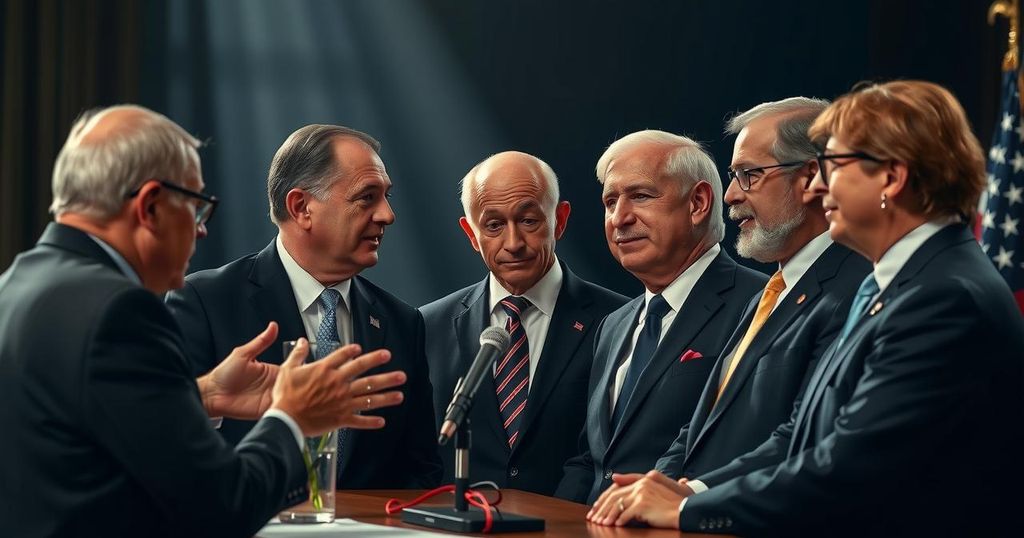Donald Trump’s unexpected re-election has stirred mixed reactions globally, with leaders expressing both concern and optimism. Trump, emphasizing an America-first agenda, poses potential challenges for NATO and U.S. allies, particularly regarding trade relations with China and commitments to European security. As world leaders prepare for Trump’s unpredictable foreign policy, the implications for international stability and cooperation remain uncertain.
The 2024 U.S. presidential election witnessed an unexpected outcome as Donald Trump secured a second term, surpassing the critical threshold of 270 electoral votes. His victory prompted diverse global reactions, reflecting both apprehension and cautious optimism among international leaders. While Trump reaffirmed his commitment to prioritizing American interests and heralded a transformative vision for the country, American allies are understandably concerned about the implications for international relations. The return of Trump promises significant shifts in areas ranging from trade relations, particularly with China, to the U.S. approach toward NATO and its obligations to Europe. Moreover, as tensions escalate across the Middle East and Asia, the world awaits clarity on Trump’s foreign policy direction, which remains notoriously unpredictable. NATO Secretary-General Mark Rutte welcomed Trump’s election, anticipating cooperation in strengthening the alliance amidst rising global challenges. Ukraine’s President Volodymyr Zelenskyy expressed hope for peace under Trump’s leadership, emphasizing the importance of U.S. commitment to European security. Conversely, there was no congratulatory response from Moscow, illustrating the strained state of U.S.-Russia relations. Meanwhile, reactions from European leaders were mixed; despite demonstrating eagerness to work with Trump, there exist underlying concerns about his previous protectionist policies and their impacts on transatlantic trade. Asian nations echoed similar sentiments, with leaders from Japan and South Korea expressing readiness to bolster bilateral relations with the United States. However, apprehension about escalating tensions with China persists, particularly as Trump’s administration is expected to adopt a confrontational stance regarding trade and security issues in the region. In summary, Trump’s re-election has invigorated a complex political landscape globally, as leaders navigate their diplomatic ties with a uniquely unpredictable U.S. administration. The ramifications of this election will undoubtedly unfold as Trump begins to implement his policies, and the world watches closely to see how longstanding partnerships may adapt to this new era.
The context surrounding Donald Trump’s second election as President of the United States is vital to understanding the global responses it has elicited. His initial term saw a shift in U.S. foreign policy characterized by skepticism towards multilateralism and long-standing alliances, straining relationships particularly within NATO and complicating diplomatic engagements with adversaries such as China and Russia. As he returns to office, leaders worldwide are recalibrating their strategies in anticipation of his potentially destabilizing approach to key international issues, including trade, security, and climate policy.
In conclusion, Donald Trump’s re-election signals a significant shift with profound implications for global politics. Leaders around the world reflect a mixture of apprehension and anticipation as they prepare to navigate a new phase of U.S. foreign policy that is likely marked by direct confrontations and a focus on national interests. How Trump addresses pressing global issues will be closely monitored, with countries reassessing their strategies in response to a transforming geopolitical landscape.
Original Source: www.pbs.org






